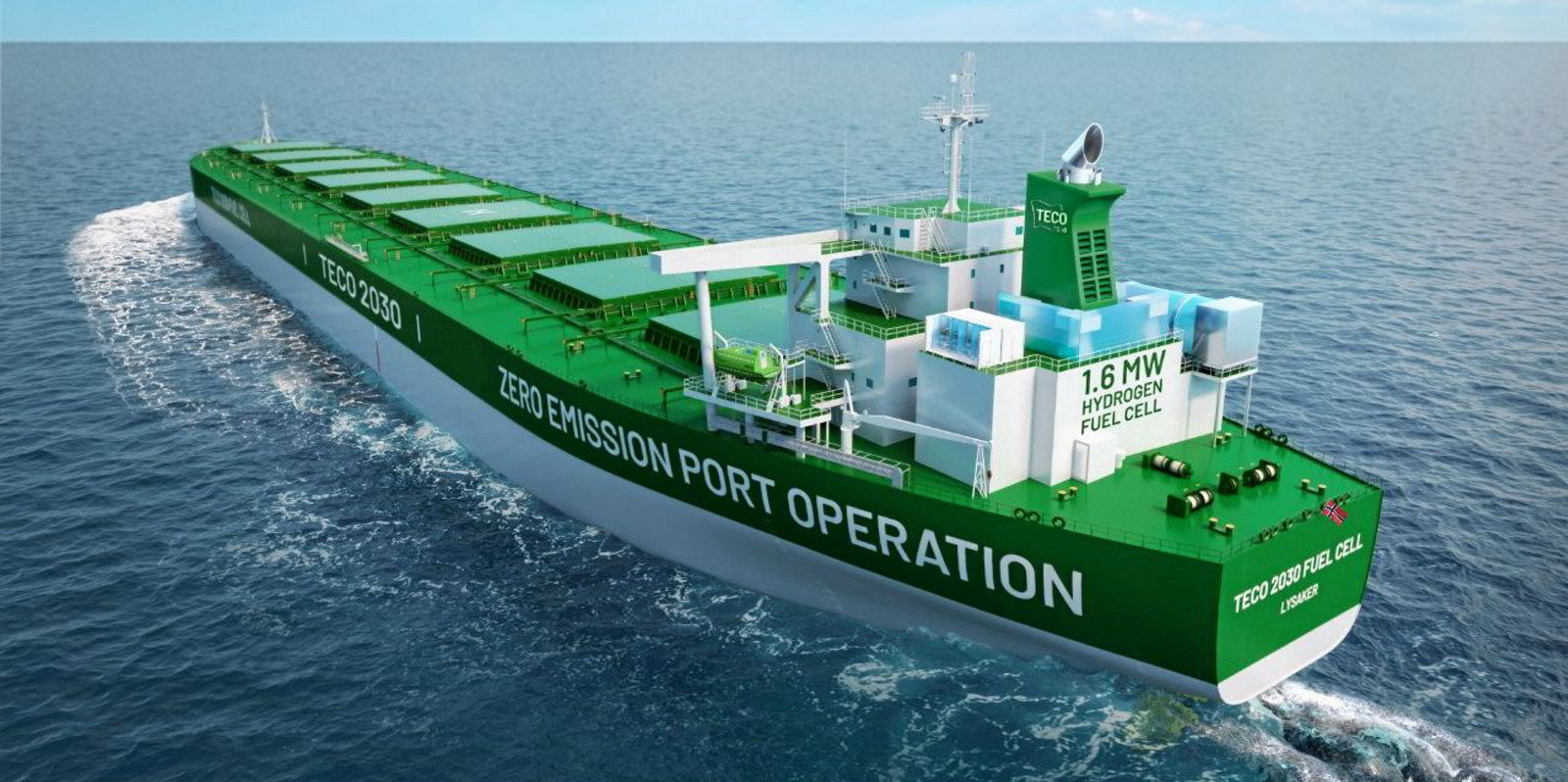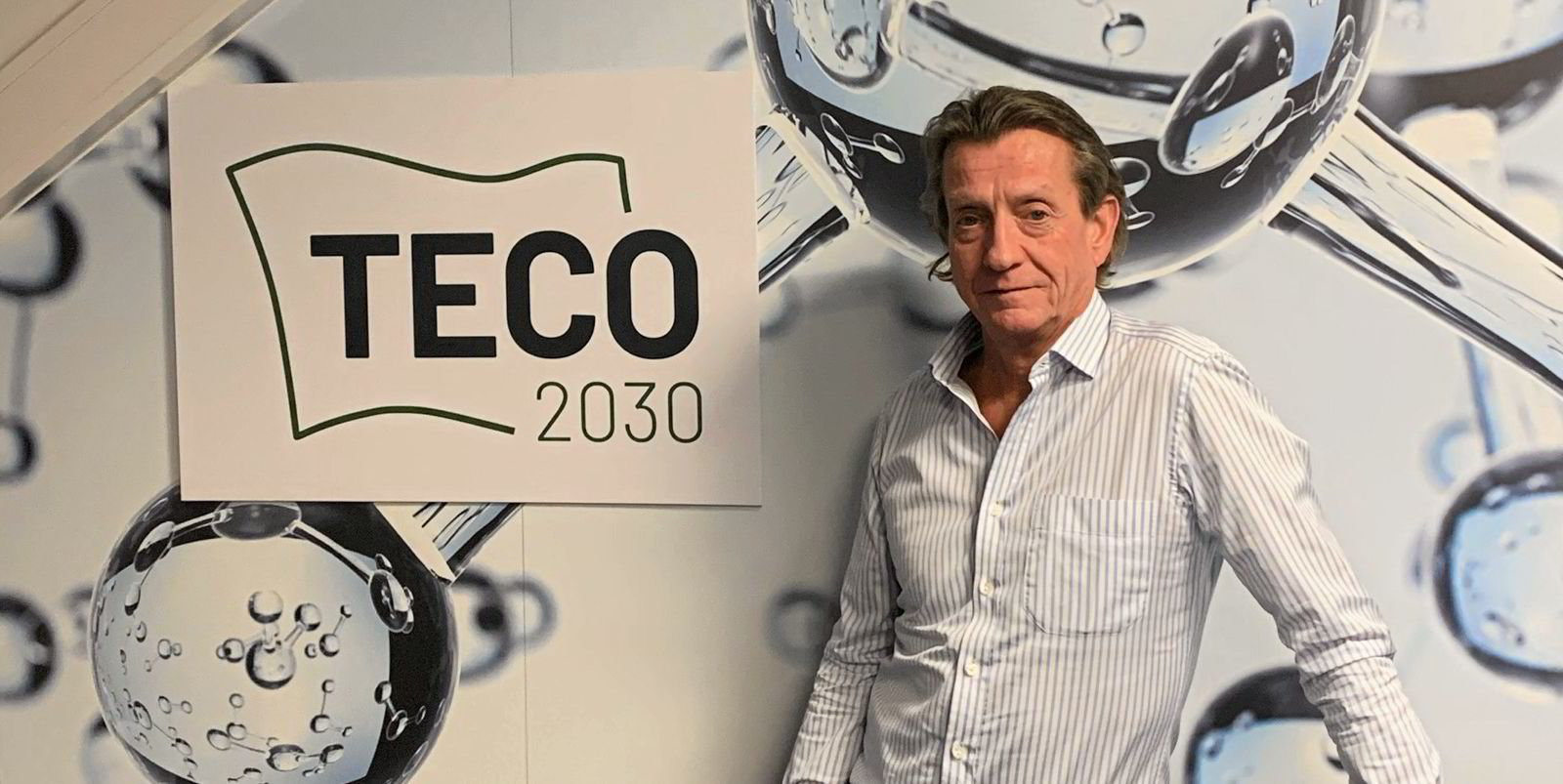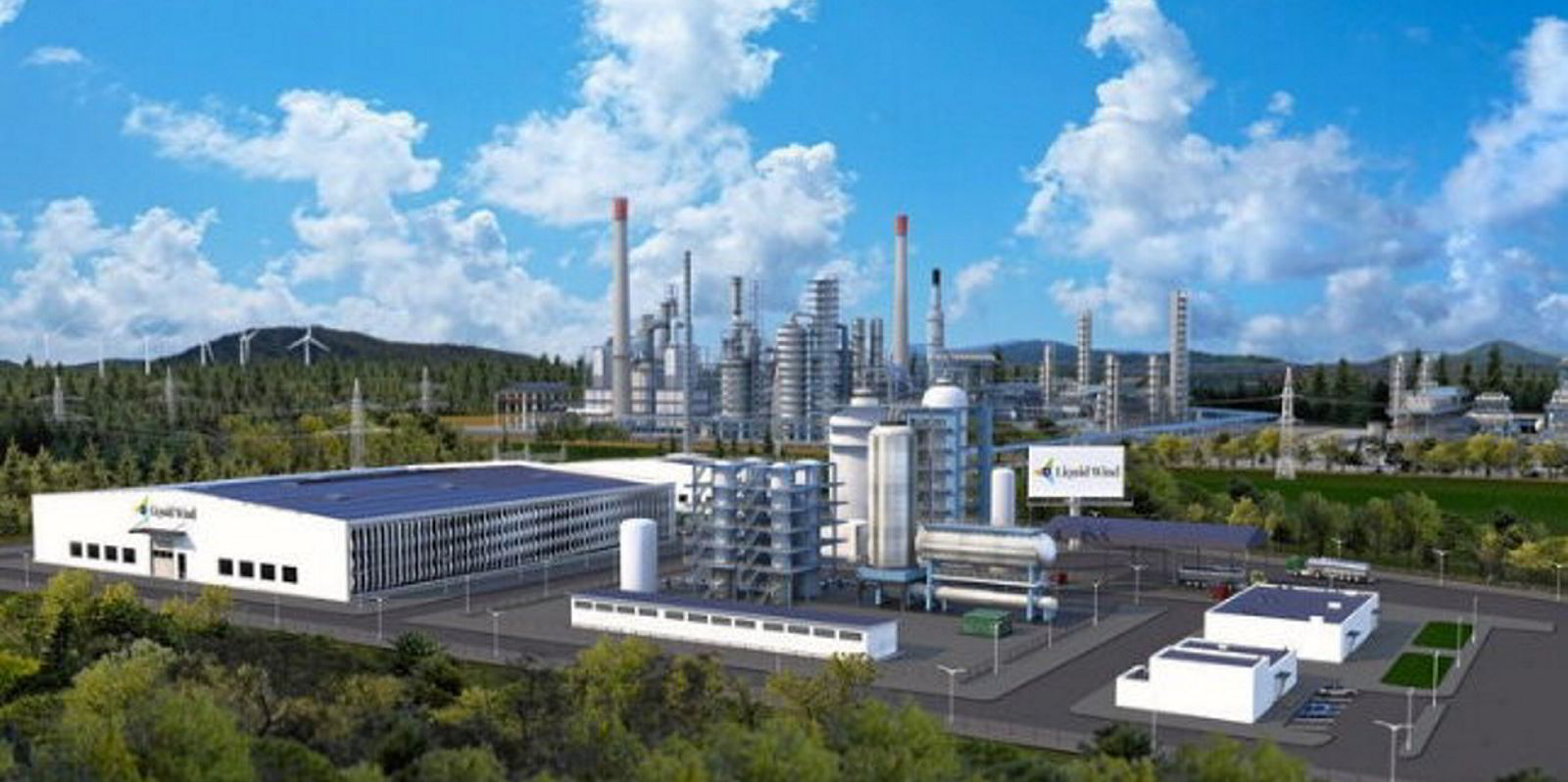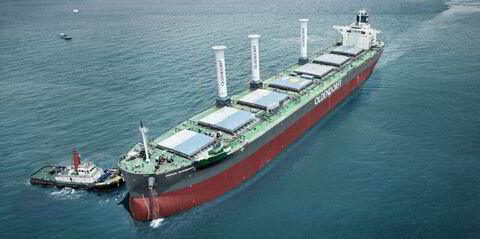Norway's Teco 2030 has unveiled its latest plan for hydrogen-powered fuel cells to cut emissions.
The Lysaker-based technology company said it is developing a fuel cell container called FCC 1600 that has an installed power output of 1.6 MW.
The Oslo-listed firm said this will be fitted to vessels in place of one auxiliary engine to provide power for operations in port, eliminating CO2 emissions entirely.
Chief executive Tore Enger told TradeWinds the cell is one of many sizes of prototype the company is hoping to install on ships in the first quarter of 2023.
Teco 2030 cited International Maritime Organisation research as showing that between 2008 and 2018, shipping emissions were cut only 7% to 1.06bn tonnes of CO2.
"So, this leads up to the question, how will the shipping industry manage to achieve the common IMO GHG strategy goal for 2030 and 2050?" the company asked.
Teco 2030 views zero-emission port operations as the future for shipping.
EEXI improvement

The new kit will "substantially" reduce environmental impact because hydrogen-based fuel cells convert hydrogen into electricity, with water vapour and warm air as the only emission.
By replacing a combustion auxiliary engine with a fuel cell, a ship's Energy Efficiency Existing Index (EEXI) rating will also improve hugely, the company added.
And fuel consumption will also fall.
Teco 2030 is already planning Norway's first hydrogen fuel cell factory to boost production up to the gigawatt level.
Large facility planned
The large-scale facility aims to manufacture cells optimised to be "the heart" of hydrogen-powered ships.
Cells totalling 1.2 gigawatts will be produced annually, meaning several hundred millions of euros in turnover, according to Enger.
"We are optimising fuel cells from the bottom up for heavy-duty marine use," Enger explained.
Teco 2030 is working with Austrian engineering company AVL on the technology.
The plan is to start fuel cell production in 2022.





